Searching for some fun facts about Scotland? It may occupy a small part of the world and have more sheep than people, but Scotland packs a lot of punch for everyone, so naturally, there are some pretty interesting Scottish facts.
The country has a lot to offer: spectacular landscapes, lakes, amazing seafood, castles, wildlife, and some of the friendliest people on earth. Scotland has so much history and culture, meaning there are so many interesting Scotland facts to know. Let’s dig in with a few!
Fun Facts About Scotland to Know
1. Scotland is one of the Celtic Nations

Starting off our list of fun Scotland facts is this one! Alongside Ireland (the whole island), Wales, Cornwall, and Brittany, France, Scotland is one of the nations that make up the cultural region of the Celts. Similar traditions, genetic make-up, and folklore unite these ancient people.
2. The Scottish Highlands are home to the highest peaks in the UK


Not only are the Scottish Highlands incredibly beautiful (like, seriously), it’s also where you’ll find Ben Nevis, which towers 4,411 feet above sea level. It’s relatively easy to climb, for a mountain – since it’s only a wee one – so around 100,000 people do just that every year. We think it’s one of the best hikes in Scotland!
3. Not a lot of people live in the Highlands
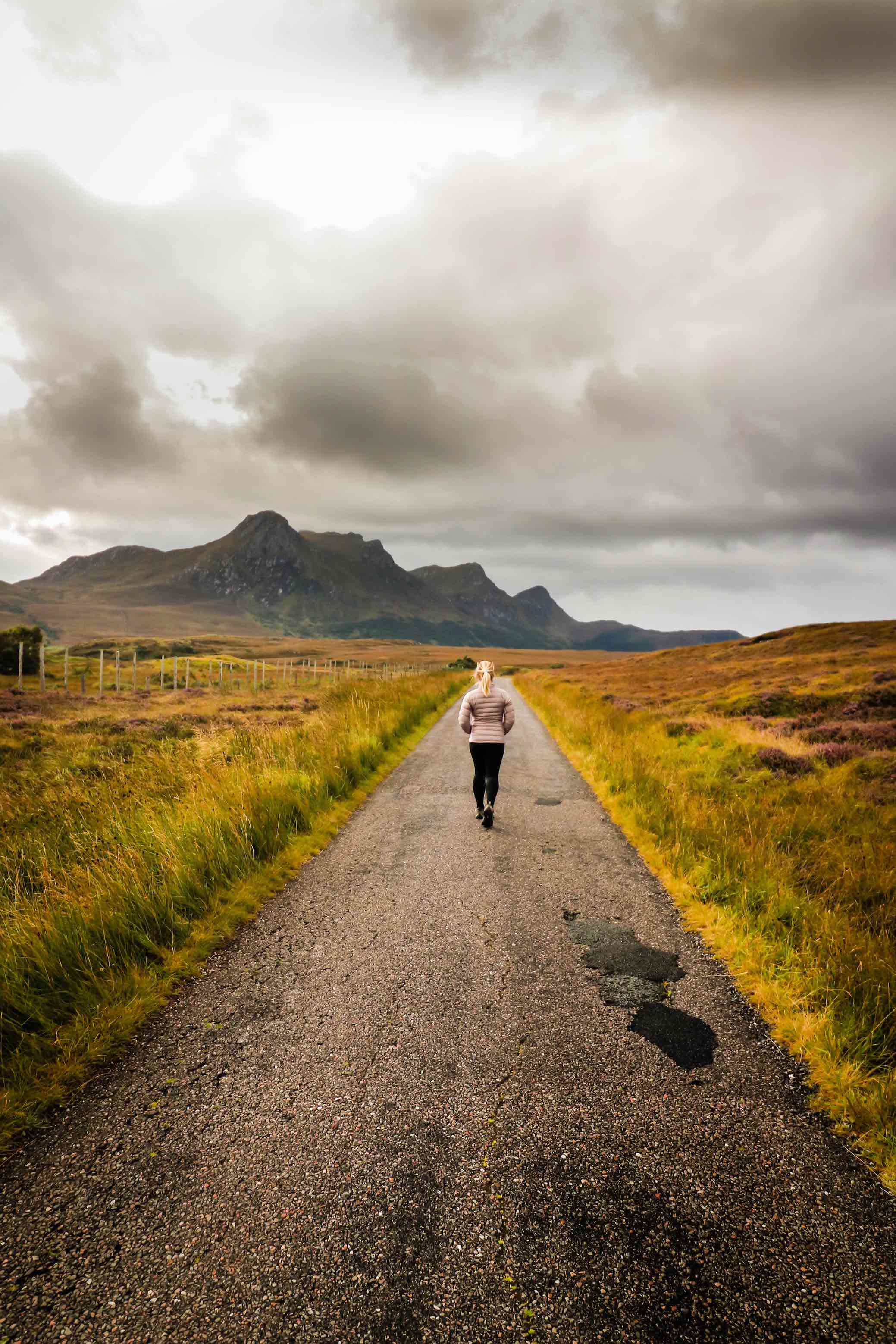

It used to have a much bigger population, but in the 18th and 19th centuries, many Highland Scots moved abroad to Britain’s new colonies in Canada, Australia, and New Zealand, as well as to newly industrialized cities down south.
4. Glasgow used to be one of the largest cities in the world
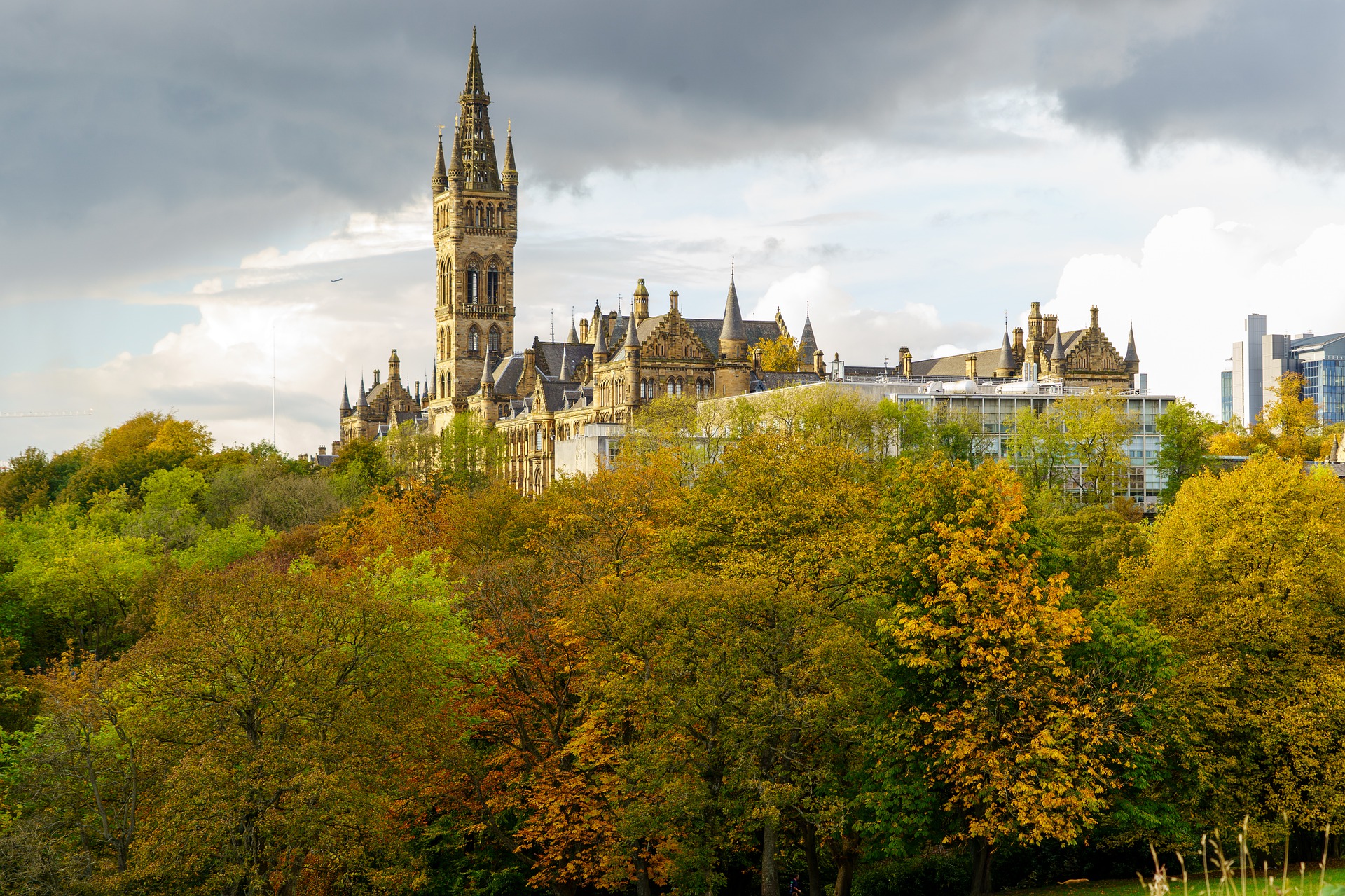

A former center of shipbuilding and industry, Glasgow is Scotland’s second city, and it’s easy to see why if you know the history. At its peak in the late 19th century, Glasgow boomed, developing so quickly that it could barely keep up with housing and welfare.
5. A Scottish guy invented the steam engine


I bet this is one of those Scotland facts you didn’t know! The thing that properly kickstarted the Industrial Revolution – and arguably the whole industrialized, modern world as we know it – was the rotary steam engine. Like all good geniuses, he built upon an already good idea and came up with ways to make the boring old steam engine do cooler stuff.
His name? James Watt. He also gave his name to a unit of energy and was credited with coming up with the measurement of horsepower. Pretty cool guy.
6. There are 790 islands that are part of Scottish land


There are four main groups: the Inner Hebrides, the Outer Hebrides, Shetland, and Orkney. The Isle of Skye, for example, is known (like many of the Scottish islands) for its outstanding natural beauty.
7. The Orkney Islands weren’t Scottish until the 15th century
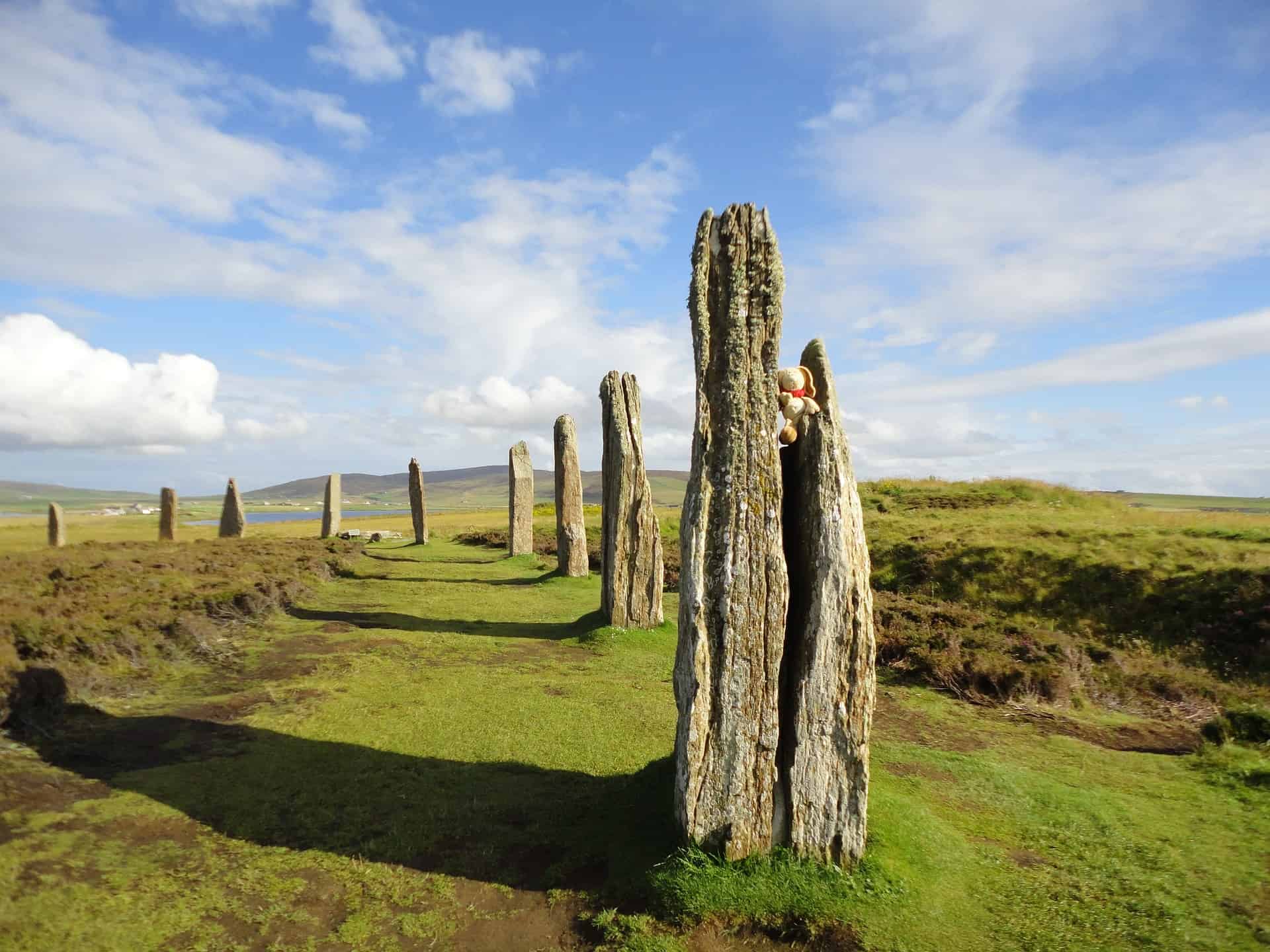

Norsemen from Norway colonized Orkney in the 8th century. Then they just decided to outright invade and annex Orkney in 875 AD. Cue hundreds and hundreds of years of Viking rule, until it was used as dowry by Danish King Christian I for his daughter’s hand in marriage to James III of Scotland.
8. Arthur’s Seat in Edinburgh is actually an extinct volcano


This is the place to go in Edinburgh if you want some great views of the city from high and it’s a super short hike in Scotland. It’s linked to legends about the semi-mythical King Arthur, obviously, but it’s a little known Scotland fact that it’s actually not just any old hill – it’s an extinct volcano.
9. Edinburgh Castle is also on an extinct volcano
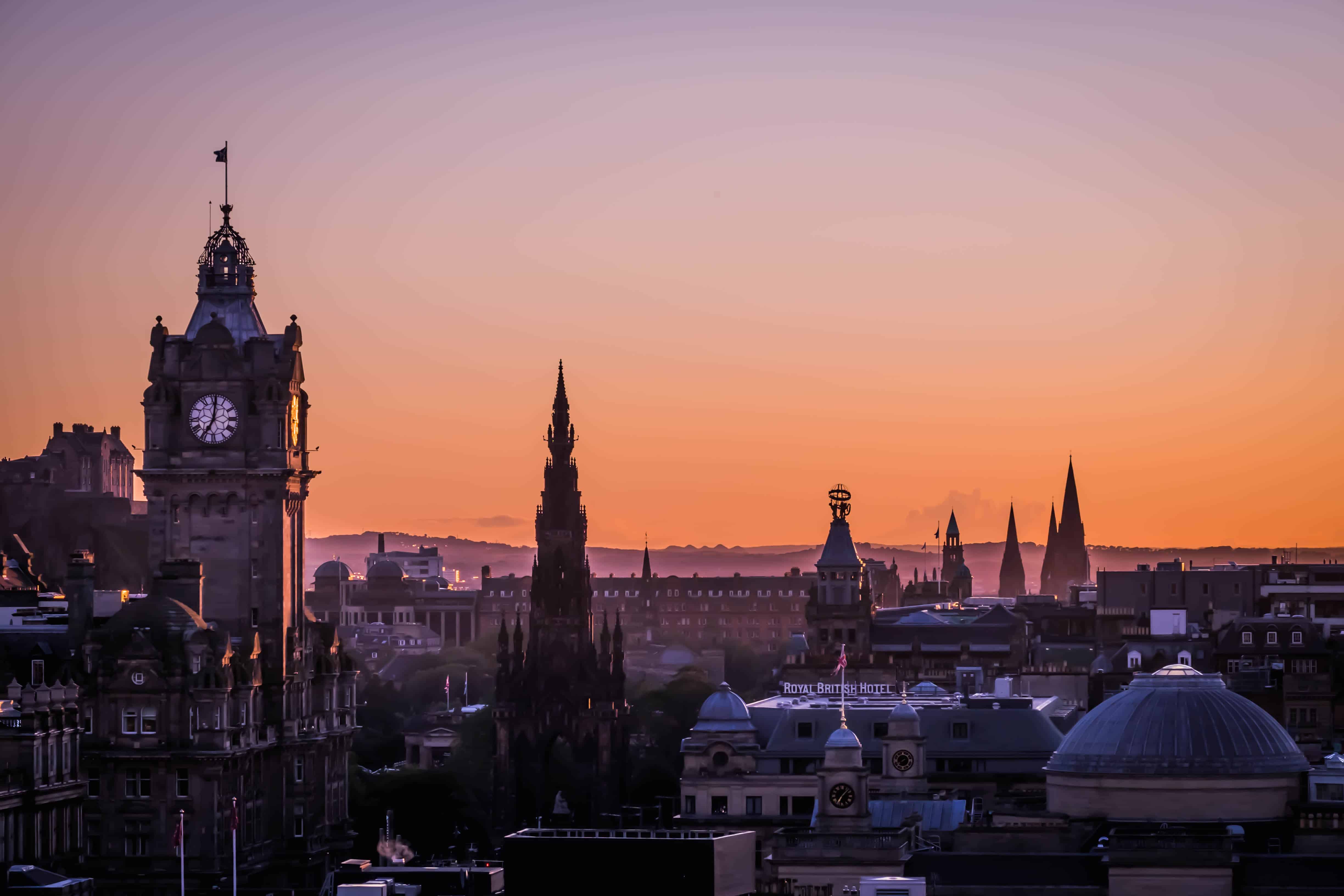

To be precise, the castle sits on a volcanic plug called Castle Rock. It’s been the site of a royal castle ever since the 12th century, but with fortresses existing here before then, and was very important to the Kingdom of Scotland. In its 1,100 year history, it’s had 26 identified sieges.
10. There are three official languages recognized in Scotland


Can you guess what they are? Probably not. The first is English, the second is Scots, and the third is Gaelic (or Scottish Gaelic). English is self-explanatory. Scots is an indigenous language of Scotland thought to be an ancient variety of English and is spoken by around 1.5 million people in Scotland. Only around 87,000 people speak Gaelic.
11. College is free in Scotland
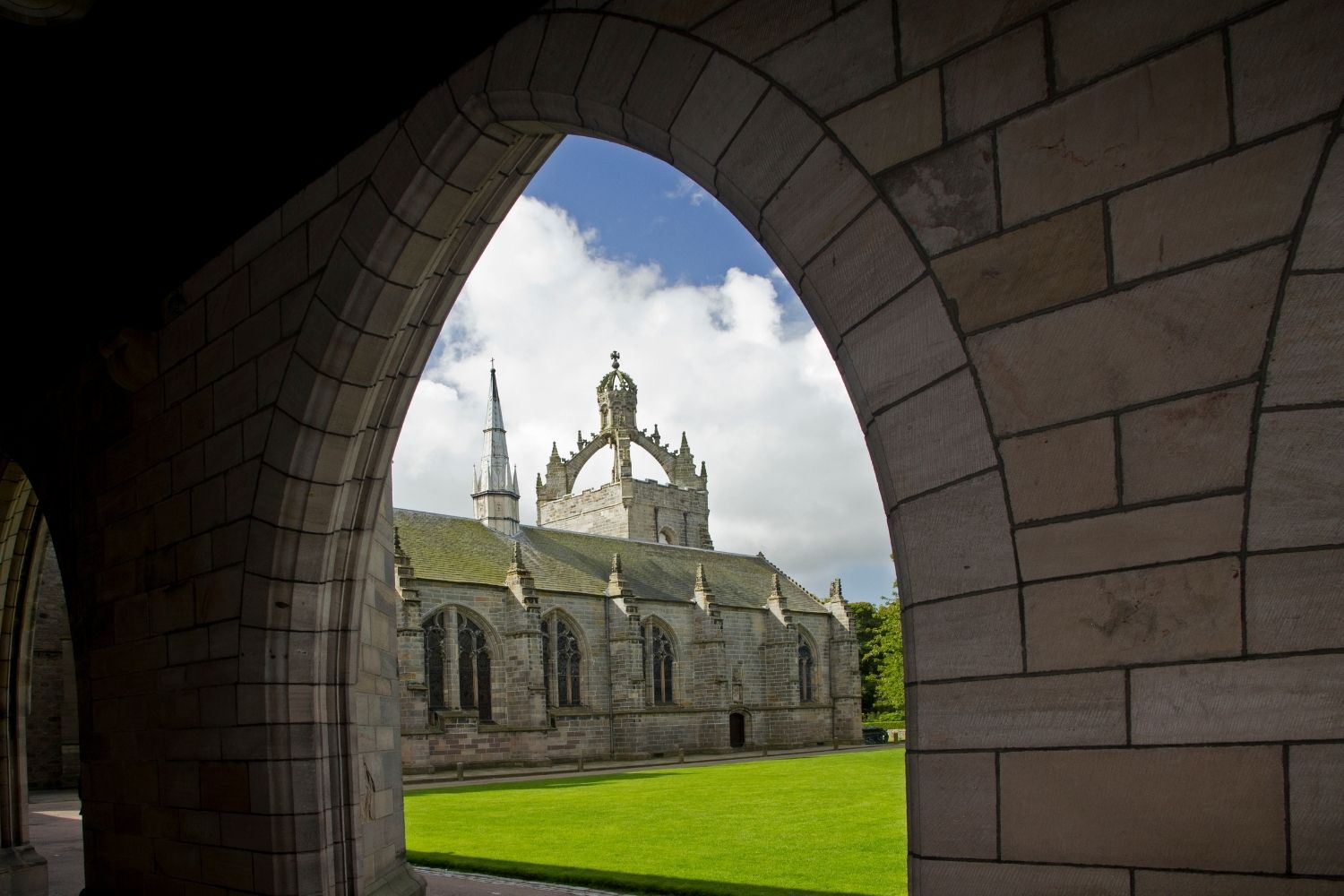

This is one of those fun facts about Scotland that might make you feel pretty bad about how much your parents saved for your college fees. Or the hoops you have to jump through to get a scholarship. Yessirree, higher education in Scotland is free. And there are some fantastic universities to boot, like St. Andrews – which is where Prince William went, for example.
12. Bagpipes are from Scotland
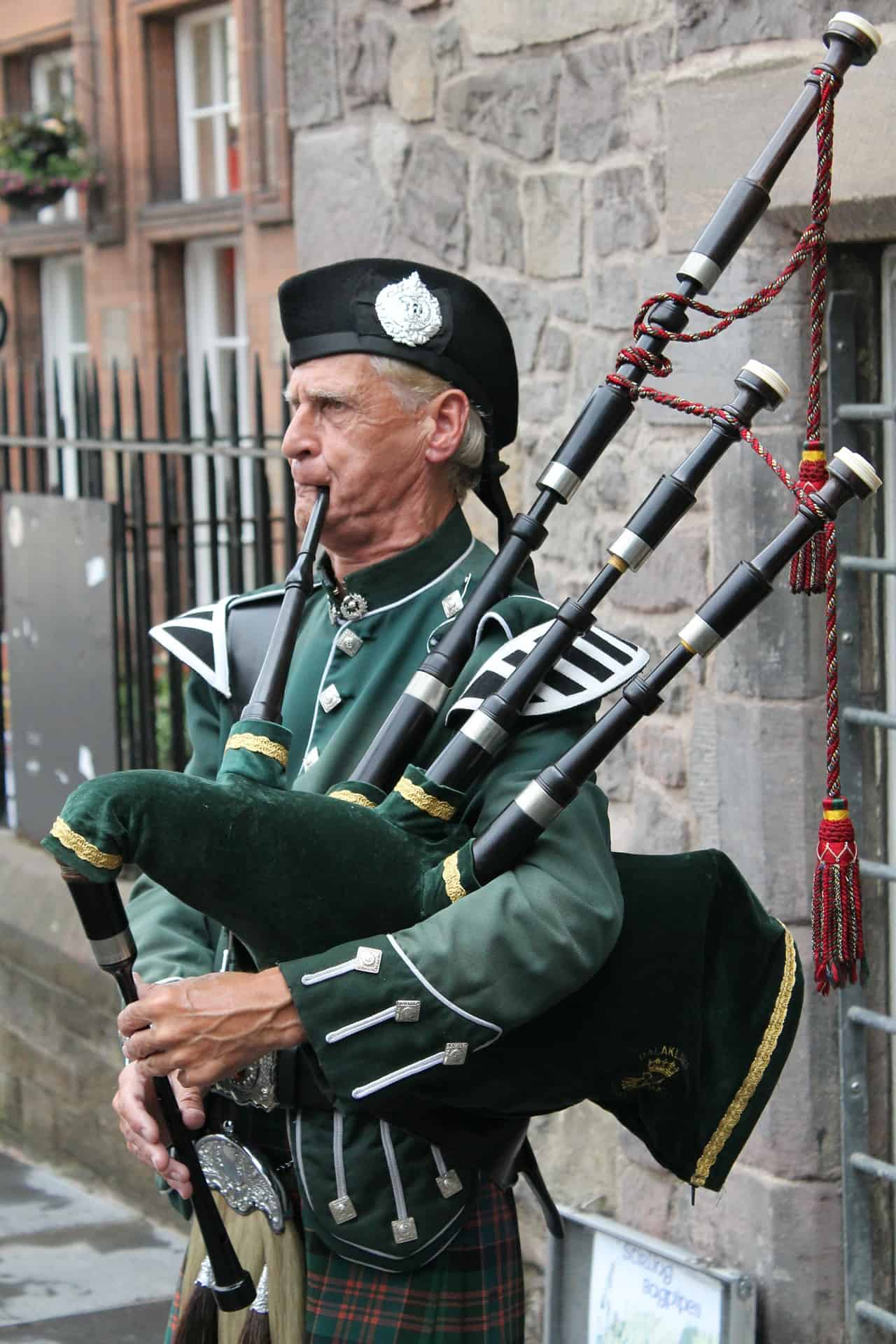

Used in poignant occasions across Britain and in military parades, bagpipes are a pretty big deal in the UK. They’re from Scotland and are first mentioned in text in the 1400s. They’re thought, however, to originate elsewhere, being evidenced in ancient Roman texts. The jury’s out on this one.
13. Scotland is not an independent nation


Scotland isn’t an actual nation. It’s a country that’s part of the United Kingdom and has its own parliament, but it isn’t independent.
14. Scotland signed a crazy treaty with England in 1502
That treaty’s name was the Treaty of Perpetual Peace. But then in 1512, James IV of Scotland decided to invade England with the help of France. We said it was complicated.
15. Scotland once had a baby queen
What we mean is that Mary Stuart – or more popularly known as Mary, Queen of Scots – became the actual Queen of Scotland in 1542 at the tender age of just six days old. She was literally born for the job.
She had a tumultuous reign and spent the last 18-and-a-half years in custody in England, where she was subsequently beheaded on the order of Queen Elizabeth I. Did we mention Scottish history is complicated?
16. Scotland boasts one of the world’s best neolithic settlements


That’s right, people. It’s called Skara Brae, and it dates back to around 3,180 BC. That makes it older than both Stonehenge and the Great Pyramids of Giza. This Scotland fact has to be one of our favorites, because the place itself is an amazing complex that’s been compared to Pompeii in terms of preservation. It simply has to be seen – it’s a UNESCO World Heritage Site after all.
17. There’s a tomb in Scotland that’s 4,000 years old
Another history fact about Scotland now; this time around, we’re looking at a recently discovered tomb. Not just any old tomb, but the tomb of a Bronze Age leader complete with treasures
18. The Romans really tried to invade Scotland


But they couldn’t. It was just too difficult. The rest of Britannia, from around 42 AD, had been relatively defenseless, but Scotland? Roman military efforts only lasted about 40 years on and off in Scotland. Tough guys. So what happened? The Romans built a wall.
19. Hadrian’s Wall didn’t just keep the Picts out
Ah yes, the Picts. They were the dangerous, unruly tribes of Scotland that the Romans just couldn’t subdue. So building a massive wall in 122 AD made total sense. But in addition to the wall, there were gates – early customs buildings. They couldn’t tax the Picts, but they could tax their trade.
20. One of Scotland’s biggest festivals celebrates a poet
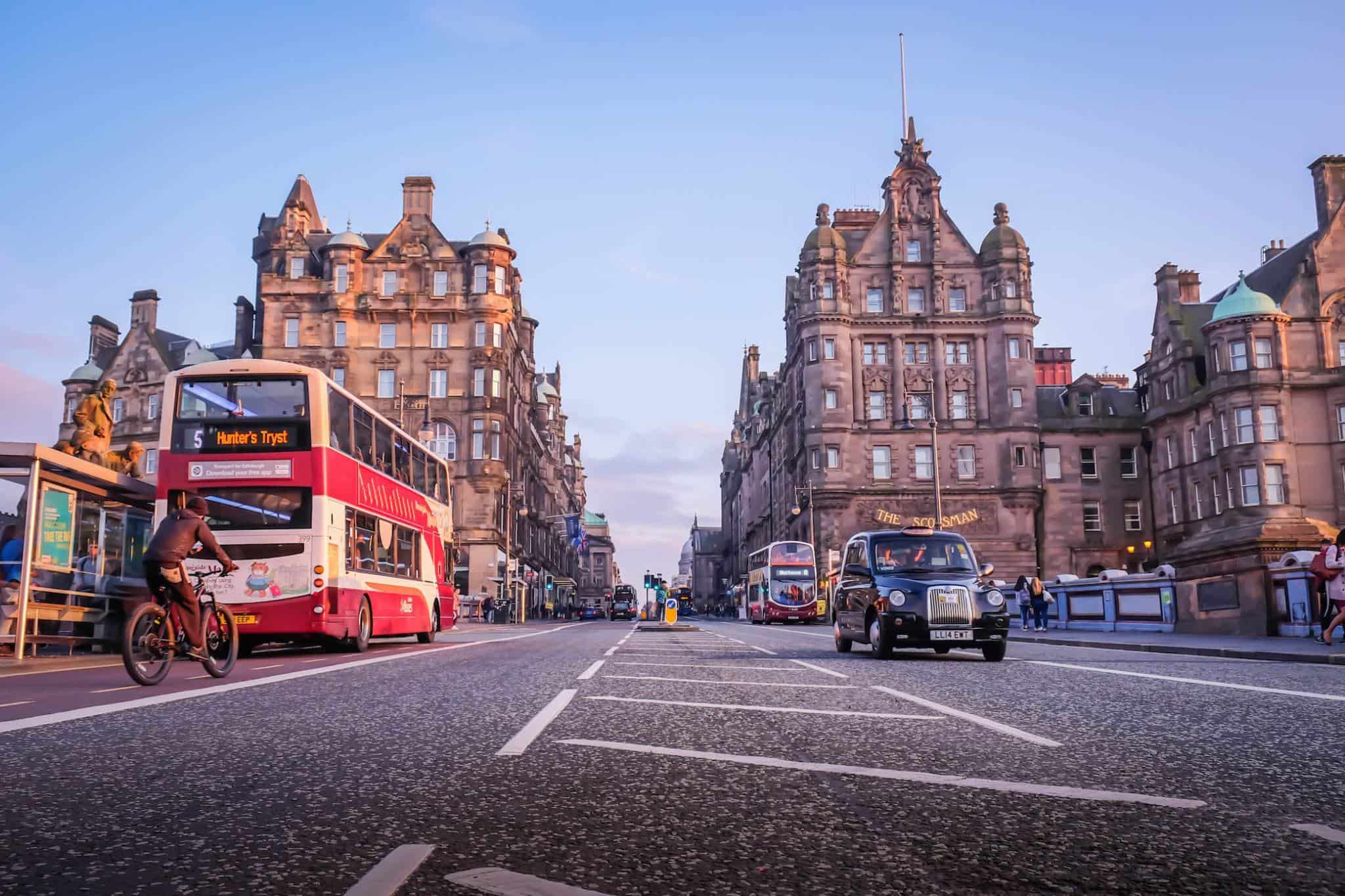

Robert Burns – sometimes colloquially known as Robbie Burns – is a very famous Scottish literary figure. His writings, from poems written in Scots to the Scottish English dialect, are much loved. Robbie Burns Night, his birthday, involves reciting a poem, cutting haggis, and then eating potatoes (and haggis) and drinking a lot. It’s kind of like a national day.
21. Robert Burns’ most famous poem is about a haggis
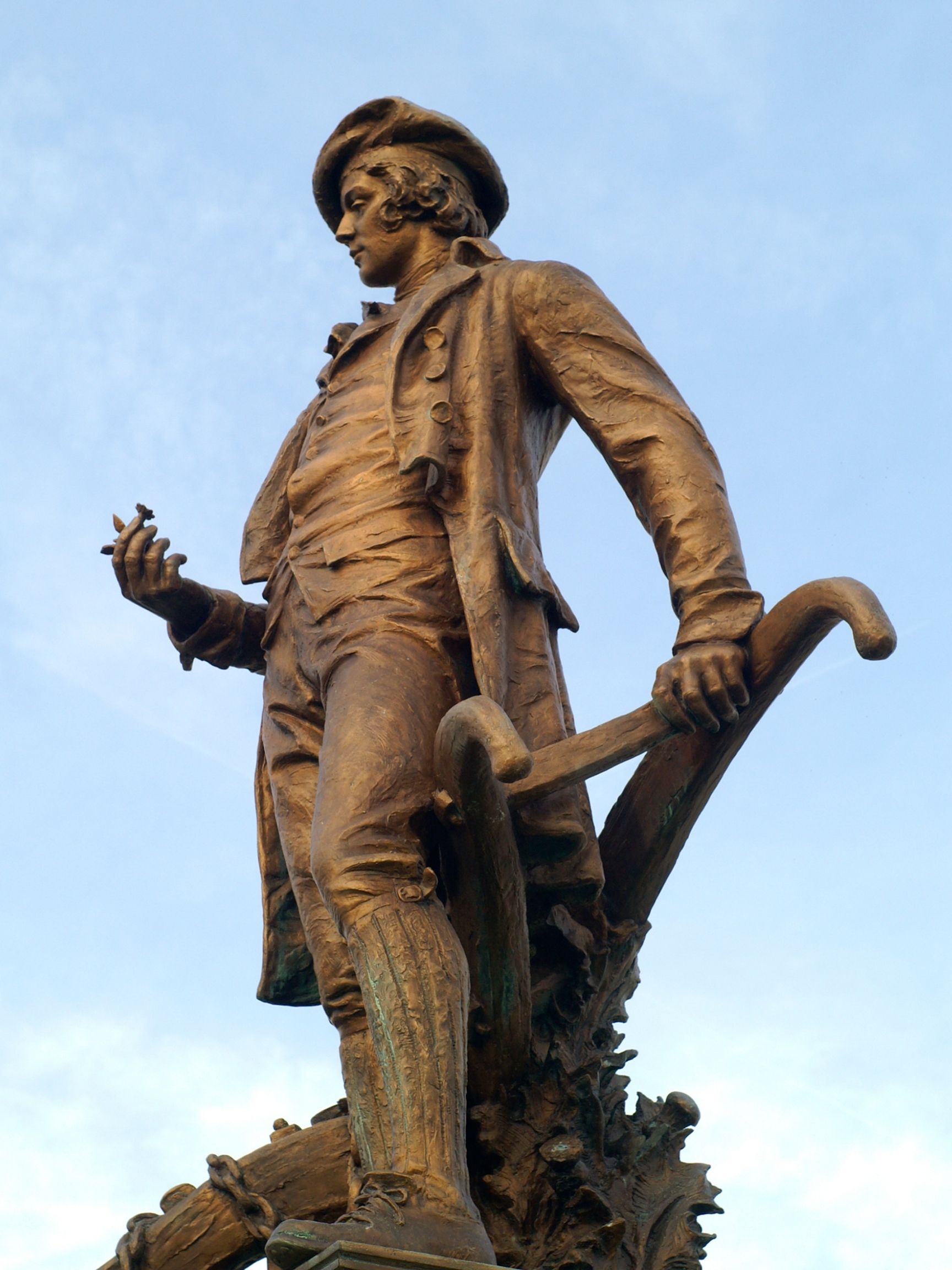

It’s a fun fact about Scotland that one of the most famous poems by its most famous poet is called “Address to a Haggis.” This is often recited before the haggis is deftly cut by the speaker of the poem.
22. Haggis isn’t as gross as you think
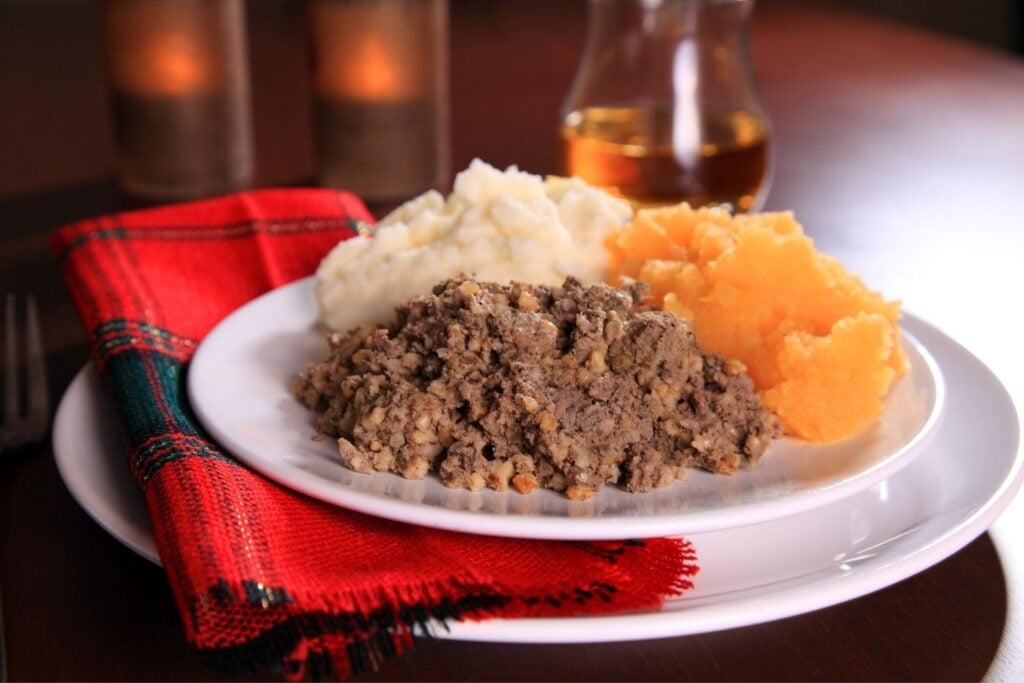

You think about what goes into sausages on a mass, factory level, then you begin to think that actually haggis isn’t all that bad. What’s in haggis? Heart, liver, and lungs all mixed up with onions, spices, salt, and oatmeal.
Formerly encased in a sheep’s stomach lining, artificial lining is mostly used nowadays. You can even get vegetarian haggis! You can easily find Haggis at many restaurants in Scotland.
23. Irn Bru is the most popular soda in Scotland


Have you even heard of Irn Bru? Well, you should know about it because it’s crazy. This stuff is bright orange, tastes like… well, it’s sweet. A bit like Dr. Pepper but lighter. Scottish people swear by this stuff. It’s practically the national drink and outsells Coke by a long stretch.
24. Scotland’s national animal is a unicorn


An actual unicorn. The national animal, and the one that features on the country’s crest, is a mythical animal that doesn’t exist. Who cares whether it exists or not – we mean, a unicorn? That’s an awesome national animal. Go Scotland!
25. Sherlock Holmes came from Scotland


We all know Sherlock Holmes didn’t actually come from Scotland. He was from London and lived on Baker Street. Right? But the guy who created him, Scottish author Arthur Conan Doyle, was obviously Scottish and was born in Edinburgh. So there you go.
26. Scotland is home to its very own Olympics


Well, not really, but the Highland Games are still pretty cool and feature various tests of strength. There’s tossing the caber (throwing a massive log), shot put, hammer throw, sheaf toss (a bundle of straw thrown over a bar with a pitchfork), and the good old tug o’ war. Some of these events you may recognize; they’ve been in the Olympics since its early days!
27. The Scottish make whisky, not whiskey
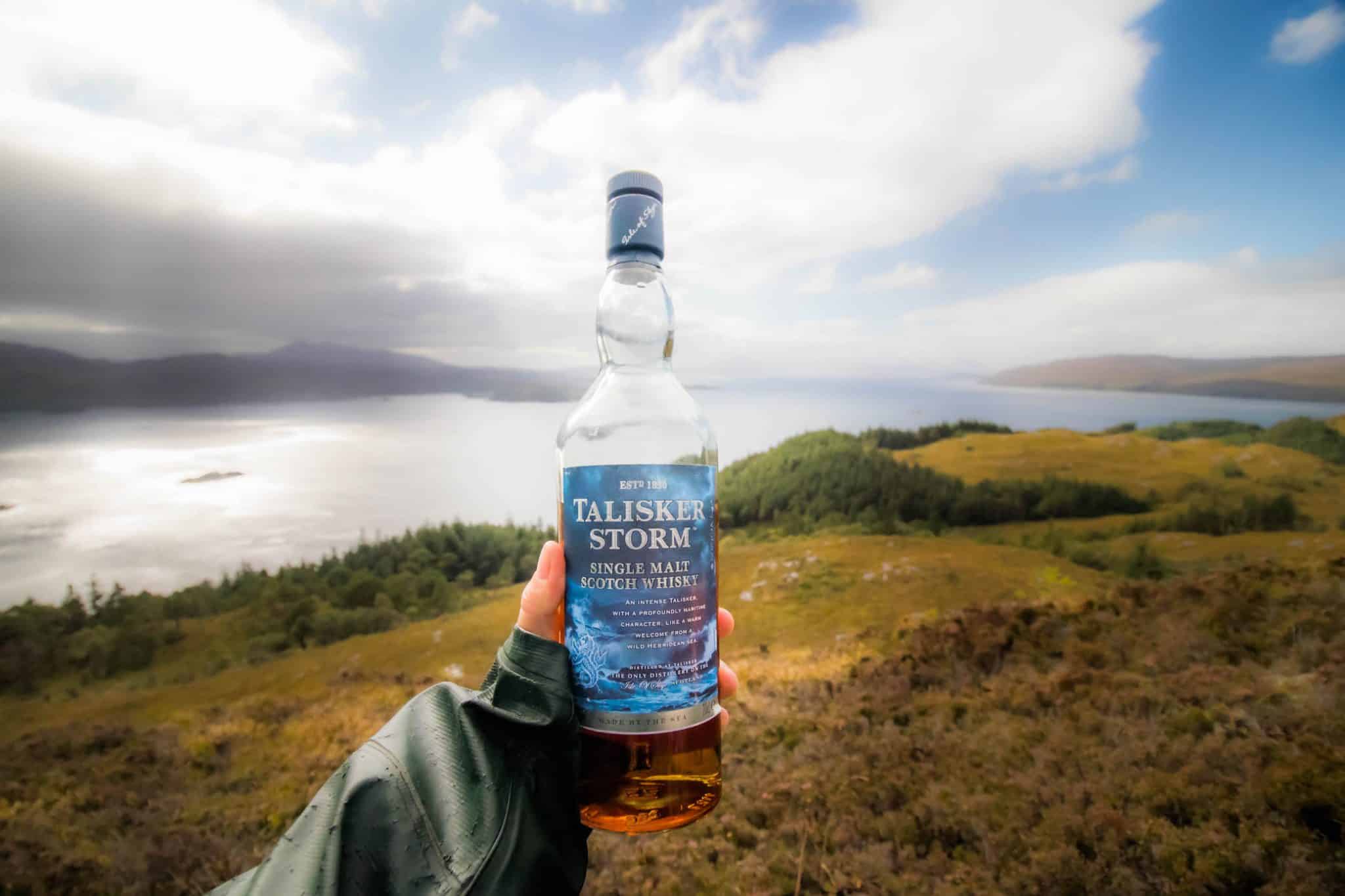

One of those interesting facts about Scotland is that they spell their variety of whisky very differently to how the Irish do. Ok, so it’s not all that different, but that “e” is the all-important vowel between appearing to know what you’re writing about and making a fool of yourself. You might know it as “Scotch,” as many people do.
28. Scottish whisky is a serious business


Whisky-making is a tradition dating back to at least 1495 (the first written account of whisky, when it was called “aqua vita” – water of life). It must be aged for at least three years in oak barrels. Any more than that, it’s bound to get better with age. The bottle will tell you everything you need to know.
29. You measure whisky in drams
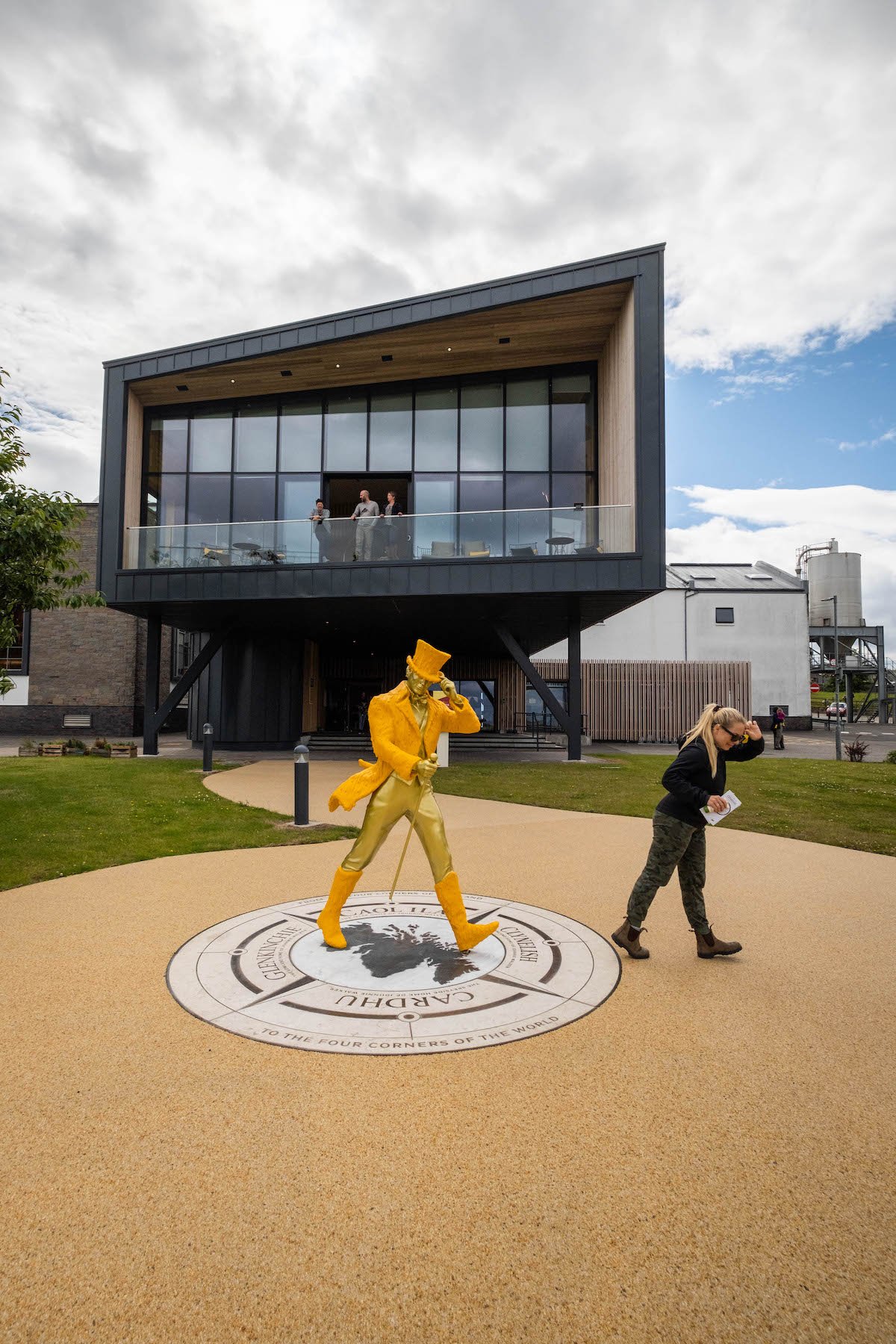

Not in fifths, or whatever. When you’re having a bit of whisky in Scotland, you can say you’re having “a wee dram.” It’s this measurement of dram that has actually found its way to the US; a dram shop is the legal term for a drinking establishment.
30. Scotland is home to the oldest tree in Europe
There’s a yew tree in Fortingall that’s said to be over 3,000 years old. Some say 5,000. Either way, that’s a long time, and one of the most interesting Scottish facts we could find. Local legend has it that it’s under this tree that Pontius Pilate was born.
31. The first modern fire brigade was assembled in Edinburgh
Though firefighting dates back to Ancient Rome (for real), Edinburgh was the first city to have a municipal fire brigade. Formed in 1824, the Edinburgh Fire Engine Establishment predates London’s fire brigade (1832) and the USA’s oldest, formed in Cincinnati, Ohio (1853).
32. Scotland is where you’ll find the Loch Ness Monster


Though it may or may not exist, the Loch Ness Monster has a long history. Thought to be some sort of plesiosaur living in the deep, dark waters of Loch Ness in the Scottish Highlands, it’s mentioned as early as 565 AD. Crazy, right?
Apparently a “water beast” attacked one of the followers of Saint Columba. Real or not, you’ll have to take a trip and perhaps drive the North Coast 500 to decide if this is one of those facts about Scotland that is real or not!
33. Tartan isn’t just a fashion statement


First mentioned in 1538, what Tartan you wore showed people what clan you were from. Each clan has a dedicated tartan. It’s seen as an icon of Scotland and is used by various countries today; Japan is the world’s biggest importer of Tartan. Even Hello Kitty has her own Tartan.
34. Kilts don’t require underwear


They may require long socks, but it’s a tradition for the men wearing kilts not to wear any undergarments – or “drawers,” as they’re known in Scotland. Nothing at all. It means you’re a true Scotsman. Except, of course, during the Highland Games when they’re flinging those cabers all over the place.
Quick Scotland Travel Tips


Currency: Great British Pound (GBP)
Visa: Many nationalities can enter the UK for 90 days visa-free
Weather: Expect lots of weather! Scotland is known for having rapid shifts in weather. Scotland receives a lot of rain to keep all the lakes, river, and streams full. See the best time to visit Scotland here.
What to Pack: A great rain jacket, wool sweater, wool socks, travel camera, & down jacket.
Stay Connected: We recommend Sim Cards from Three – signal is limited in the highlands.
Right to Roam: There isn’t much in the form of trespassing in Scotland. Everyone has the right to roam and explore the stunning countryside.
Hope you enjoyed these fun Scotland facts! Any I should Add?


PLANNING A TRIP TO SCOTLAND?
Check out all of our resources!




















